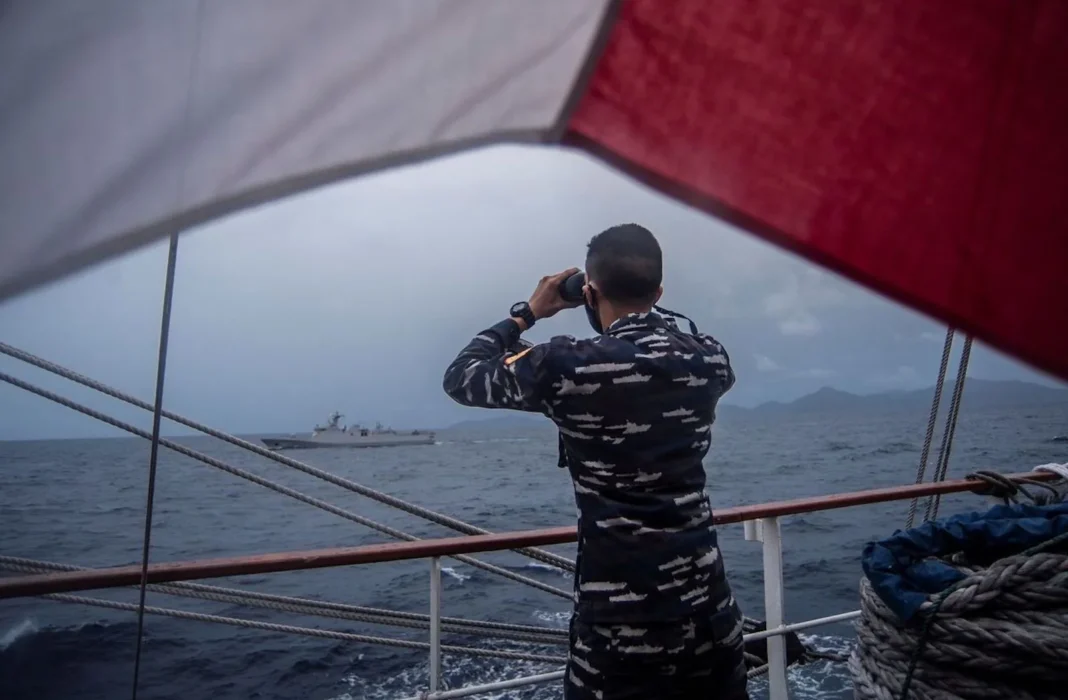Vietnam and Indonesia agreed to delimit their respective Exclusive Economic Zones (EEZs) on 22 December 2022 after 12 years of negotiations. The agreement provides hope for the strengthening of the region’s commitment to international maritime norms and principles encapsulated in the 1982 United Nations Convention on the Law of the Sea (UNCLOS).
The two countries previously had longstanding and overlapping EEZ claims in the waters surrounding the Natuna islands in the South China Sea. After agreeing on the Indonesia-Vietnam continental shelf boundary in 2003, Vietnam wanted to use the same boundary for their EEZ delimitation.
But Indonesia wanted the median line between Natuna island and Con Dao island — about 178 nautical miles from the Indonesian island of Kalimantan and less than 89 kilometers from Vietnam’s coastline respectively.
Vietnam contended that the use of the island–island median line was unfair. The two sides finally agreed on using separate measurements for their continental shelf and EEZ boundaries. Given the classified nature of bilateral negotiations, it is unclear how they applied the median line method to settle their differences.
The timing of the demarcation is symbolic. Indonesia and Vietnam sped up their negotiation to time the delimitation with the 40th anniversary of UNCLOS. While both sides agreed to expedite the process in 2018, it was delayed due to the Covid-19 pandemic and negotiations resumed in 2021. The 14th and 15th rounds of negotiations occurred in July and September 2022 respectively.
For Indonesia and Vietnam, upholding UNCLOS matters because it enables them to assert their respective sovereign international maritime rights and to enforce their maritime interests.
In her 2021 press statement, Indonesian Minister for Foreign Affairs Retno Marsudi made it clear that “Indonesia will continue to reject claims that are not based on international law.”
Vietnam’s Permanent Representative to the United Nations Ambassador Dang Hoang Giang has similarly emphasized the importance of UNCLOS to Vietnam’s long-term development.
In 2016, Hanoi and Jakarta squandered a rare opportunity to uphold UNCLOS when the arbitral tribunal in the Philippine-China South China Sea arbitration case ruled that China’s claims under the so-called “nine-dash line” are invalid. The tribunal’s ruling is final and binding, but China flatly rejected the outcome as “null and void” and having ‘no binding force’ despite being a signatory to UNCLOS.
Although Indonesia deemed China’s claims invalid, it was silent at the time on the status and implications of the arbitral outcome. Vietnam merely acknowledged the award by reiterating its support for ‘peaceful means, including legal and diplomatic processes’.
The successful Indonesia-Vietnam EEZ demarcation will help both countries combat illegal, unreported and unregulated (IUU) fishing. IUU fishing has been a serious bilateral irritant and a broader issue involving third-party countries, including China and Thailand. Before the December 2022 delimitation, differing interpretations of where their EEZs overlapped had led to conflicts over IUU fishing activities.
The Indonesian and Vietnamese coast guards had already agreed on regular exchanges and prompt sharing of information about maritime law enforcement at sea, particularly for IUU fishing activities. The new EEZ agreement will likely further boost cooperation.
There are important economic and legal benefits in settling the EEZ issue. Soon after the EEZ agreement, Indonesia’s energy minister said that Indonesia aimed to export natural gas from the Tuna offshore block, which lies in Indonesia’s EEZ but is close to Vietnam’s EEZ border.
The expected gas reserves lie under Indonesia’s continental shelf and article 77 of UNCLOS provides for Indonesia — as the coastal state — to legally exploit and explore its natural resources. Delimiting the EEZ with Vietnam provides further clarity for any structures involved in gas exploration and exploitation activities.
The EEZ demarcation is of strategic importance for both Indonesia–Vietnam bilateral relations and the region amid great power tensions and China’s territorial claims and assertiveness in the high seas. The EEZ agreement will hopefully build greater strategic trust between Vietnam and Indonesia, and perhaps deepen cooperation between their naval and coast guard forces.
This will build on earlier positives like the first coordinated exercise between the Vietnamese and Indonesian navies between August 19 and September 3, 2022, in the waters off Indonesia’s Batam and Bintan islands.
The successful EEZ delimitation with Indonesia may encourage Vietnam to conclude similar agreements with the Philippines and Malaysia. If Southeast Asian claimant states could collectively settle their bilateral maritime boundary disputes then they might be in a stronger position to negotiate a Code of Conduct for the South China Sea or some other mechanism with China.
Notably, parts of Vietnam’s and Indonesia’s EEZs overlap with China’s nine-dash line. By concluding their EEZ delimitation agreement without considering China’s position, Vietnam and Indonesia have essentially rejected China’s territorial claims.
Even though the agreement was reached five years after the South China Sea arbitral case, it has indirectly increased the pressure on China to comply with the 2016 arbitral ruling.
The more Southeast Asian states show their commitment to UNCLOS principles, norms and rules, the more the region can demonstrate agency and resist China’s bold claims and actions in the South China Sea and beyond.
Bich Tran is a PhD candidate at the University of Antwerp and an adjunct fellow at the Center for Strategic and International Studies (CSIS) in Washington, DC.
This article, republished with permission, was first published by East Asia Forum, which is based out of the Crawford School of Public Policy within the College of Asia and the Pacific at the Australian National University.

